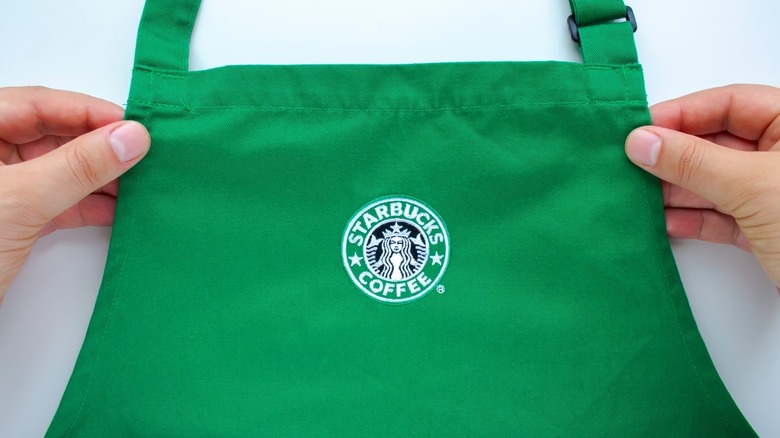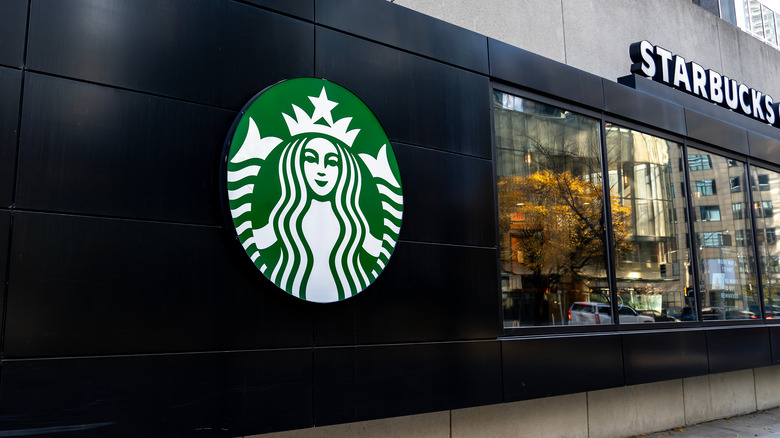The Problem With Starbucks Benefits, According To Employees
In recent weeks, multiple stories have come out about people who worked at Starbucks specifically for their IVF benefits. At the end of February, Autumn Lucy shared with Business Insider how the only way she could afford in vitro fertilization (IVF) was by picking up a part time job at Starbucks because most insurance companies do not cover IVF. True, she made no money from working, but she got the benefits package that allowed her to finally become a parent.
A similar story was shared with NBC news in late March. A couple couldn't have children without IVF and the only company in their area that offered benefits that covered this was Starbucks. So, Leah Russell applied, was hired, and learned that the benefits were structured in such a way that her actual paycheck could not cover the deductible. Fortunately, her partner's salary could keep them afloat.
The point, though, is that even if one works full time, the amount one actually makes means that you often can't pay for the benefits you receive. The issue extends beyond IVF as well. Back in May, when Business Insider was covering how Starbucks was suffering the labor shortage, workers were already saying that even though they appreciated the benefits, that wasn't what they wanted: "Benefits do not make up for lackluster pay; free Spotify doesn't pay rent."
Benefits are great but pay is better
This is not to say that workers are demonizing the benefits Starbucks offers. "From tuition assistance to health care coverage," the Twitter account for Starbucks Workers United wrote back in August, "we appreciate the benefits Starbucks offers to partners. This doesn't mean things couldn't be better." Again, in the piece about staffing, another worker admitted "Our benefits are amazing, however in lieu of some of the frivolous ones such as Headspace, a meditation app, we would prefer higher wages and better staffing."
However, it is cheaper for Starbucks to offer free Spotify or Headspace because the subscription to these apps is less than what they'd have to pay in higher wages. It's analogous to the perk wars Corey Pein covered in Silicon Valley in which businesses will offer free steak suppers to those who worked late because the $20 spent on steak results in $200 made from their work. It is perhaps for this reason that even though Howard Schulz repeatedly states that there is no need for a representative between the workers and corporate, there has been a pattern of firing union agitators who if successful would push for more material benefits that a free subscription to Spotify, per Vice.

